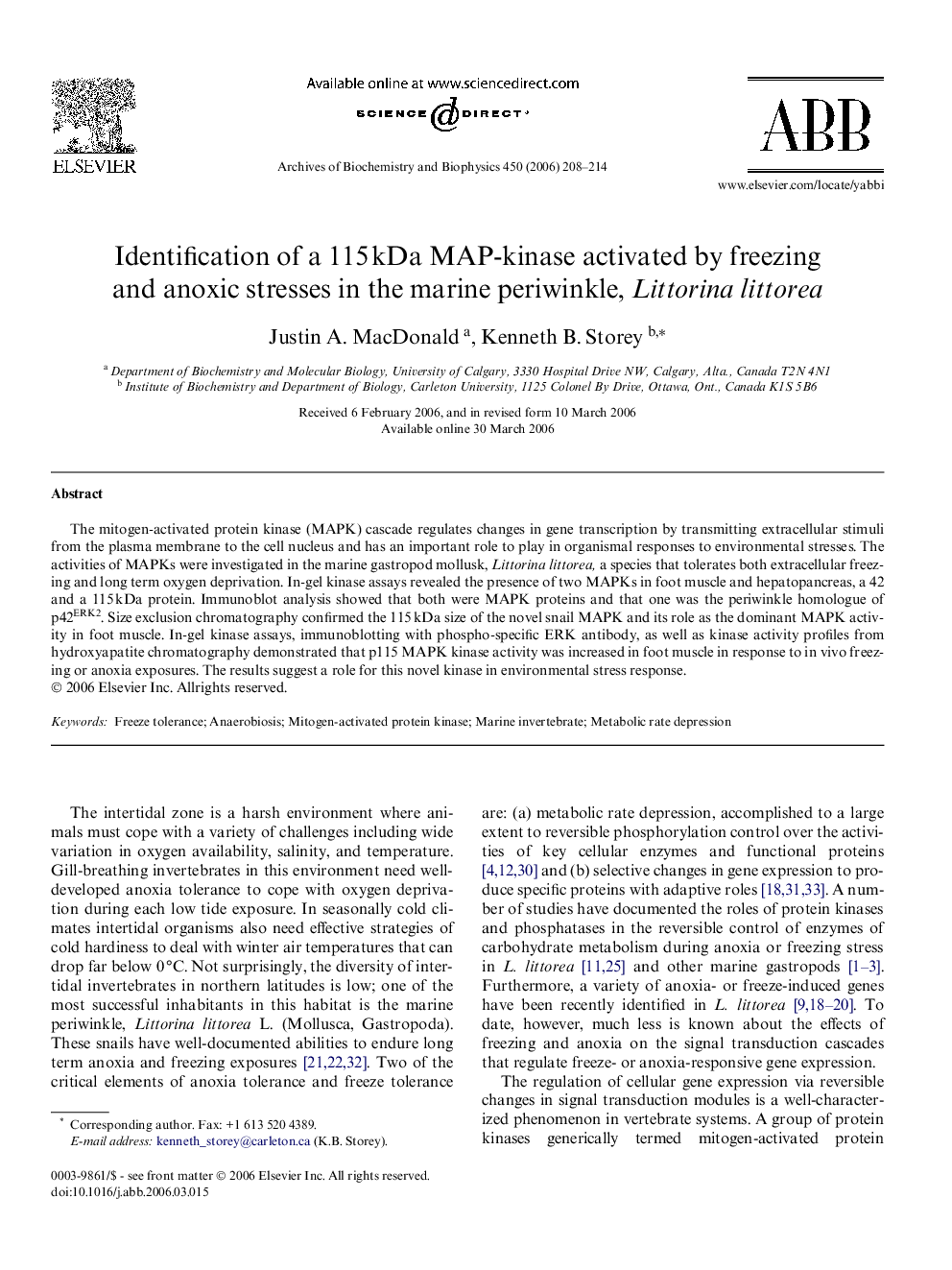| Article ID | Journal | Published Year | Pages | File Type |
|---|---|---|---|---|
| 1927510 | Archives of Biochemistry and Biophysics | 2006 | 7 Pages |
Abstract
The mitogen-activated protein kinase (MAPK) cascade regulates changes in gene transcription by transmitting extracellular stimuli from the plasma membrane to the cell nucleus and has an important role to play in organismal responses to environmental stresses. The activities of MAPKs were investigated in the marine gastropod mollusk, Littorina littorea, a species that tolerates both extracellular freezing and long term oxygen deprivation. In-gel kinase assays revealed the presence of two MAPKs in foot muscle and hepatopancreas, a 42 and a 115Â kDa protein. Immunoblot analysis showed that both were MAPK proteins and that one was the periwinkle homologue of p42ERK2. Size exclusion chromatography confirmed the 115Â kDa size of the novel snail MAPK and its role as the dominant MAPK activity in foot muscle. In-gel kinase assays, immunoblotting with phospho-specific ERK antibody, as well as kinase activity profiles from hydroxyapatite chromatography demonstrated that p115 MAPK kinase activity was increased in foot muscle in response to in vivo freezing or anoxia exposures. The results suggest a role for this novel kinase in environmental stress response.
Keywords
Related Topics
Life Sciences
Biochemistry, Genetics and Molecular Biology
Biochemistry
Authors
Justin A. MacDonald, Kenneth B. Storey,
